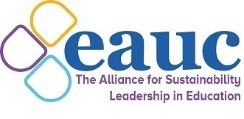We need more leaders, we need more action
A blog by Professor Joy Carter CBE, GuildHE Climate Commissioner for the Climate Commission for UK Higher and Further Education.
Next month, the eyes of the world will be on the United Kingdom as Glasgow hosts the United Nations Climate Change Conference – also known as COP26. Indeed, the eyes are already here. Following the national and international uproar caused by the UK Government not objecting to a proposed ‘green’ deep coal mine in Cumbria, the Government performed a U-turn with a public enquiry into the plans. There is much heightened emotion for this year’s COP – be that expectation, excitement, fear or doubt. The UN Secretary-General called the latest IPCC Climate Report a “Code Red for Humanity”. US climate envoy John Kerry has described COP26 as “the last best chance” to avert the world from the worst impacts of the climate and ecological emergency. They’re right.
Whilst previous COPs have set out agreements and routes to reducing greenhouse gas emissions - including the 2015 Paris Agreement which sets out to limit global warming to well below 2oC and preferably to 1.5oC -, intergovernmental action to date has been limited to reducing the ‘business as usual’ rate of emission increases with near-disastrous effect. Over the 28 years since the Rio Summit in 1992, atmospheric CO2 emissions have risen 16.6% to 415 ppm as of January 2021. Following the 2015 Paris Agreement, atmospheric CO2 concentrations continued to rise by 3.2% between 2016 and January 2021. It is clear that previous COPs have failed to deliver the scale of emissions mitigation needed to protect lives and livelihoods.
Awakening Giants
With the absence of concerted and effective leadership at an intergovernmental level, we need more community leaders from all parts of society to step up and fill the void of effective action – and our universities and colleges are ideally placed for this.
UK universities and colleges play a unique role in setting and shaping the cultural expectations for over 5.5 million students and staff. This influence isn’t just limited to our campuses. It spills over into the wider community - institutions influence local authority decision making and students and staff engage with and influence business through employment and purchasing power, with politics through local and national elections, and with their own family and friends through social networks.
Yet there has been hesitancy to deliver the holistic range of actions we know are needed to tackle climate change – for example from embedding sustainability throughout learning, teaching and research, to reducing meat content in catering. Often this has been framed as a wish or value of intellectual autonomy, not telling others how to live their lives. However, in other areas of our institutions, we do see actions to curb behaviours, such as limiting smoking areas or even put in place smoking bans on sites. To date there has been a focus on operational emission reductions and the academic research output within fields such as sustainable development or renewable energy as our contribution to tackling the climate and ecological emergency.
Whilst we must recognise the significant progress made by institutions in these areas, we must also recognise that we cannot reach our goals through estates and research actions alone. Many of our institutions have not realised the full potential of this social influence and the holistic role they can and need to play in achieving climate change and sustainability commitments. We must move the conversation on, and fast.
Sector Leadership: Climate Commission for UK Higher and Further Education
Recognising the unique position our institutions are in to tackle the climate and ecological crisis, the Climate Commission for UK Higher and Further Education was formed. Launched in November 2019, the Commission is an unique partnership between Association of Colleges, EAUC, GuildHE and Universities UK working to coordinate climate action through collaborations between our Commissioners, Council and Expert Witnesses, particularly between HE and FE and amongst students and institutional leaders.
Over the past 18 months it has been facilitating discussion and leadership on the climate emergency and advancing climate action. The Climate Commission has been particularly successful in bringing together diverse stakeholders with, at times, competing interests to develop a consensus on sector-wide climate action. Central to this has been engagement from students as co-leaders and co-creators within this space. These discussions have directly led to the creation of sector resources such as the HE Climate Action Toolkit and FE Climate Action Roadmap, showcasing best practice, sharing ideas and providing links to further resources for sustainability action across all areas of universities and colleges.
To date 62 universities and colleges have engaged directly as Climate Commission Council Members. The Commission’s work also prompted UUK’s recent roundtables, in which over 100 universities participated, to plan for action in the run up to, and beyond COP26. The Commission is now liaising with the Department for Education’s newly-created Sustainability Unit to share and discuss the insights gathered over the past 18 months and are supporting the Unit in developing their strategy which will be published in April. Engagement and collaboration have been key to all of this work.
Being the Leaders We Need
The Climate Commission is asking all UK institutions to commit to the global Race to Zero for Universities and Colleges ahead of COP26 and have their actions recognised by the United Nations Environment Programme. This commitment focuses on four action areas: Pledge, Plan, Proceed, and Publish. Institutional leaders must commit to reach net zero greenhouse gas emissions as soon as possible. This decade is crucial. And with the UK being the 5th largest contributor to global warming from 1750 to 2019 emissions, it is imperative that institutions push beyond a 50% emissions cut.
With the eyes of the world on COP26 and the UK this year, the eyes of our students and staff are also on our institutions. They expect a response. We need one. As Lord Deben said at the opening of the Climate Commission’s One Year On event in November 2020, “Knowledge implies responsibility”. And the case of the UK Government U-turn serves to show a timely reminder that inaction is very visibly becoming no longer an acceptable option.
















